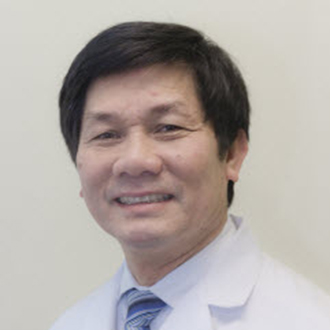
07
Oct
Dentist vs. Oral Surgeon: What is the Difference?

Dentistry is a vast field, and every condition requires specific attention. Choosing the right professional for your oral health requires an understanding of the various specializations. If you experience oral health problems, you may be wondering whether to contact a dentist or an oral surgeon. While both professions sound similar, they have their unique differences. Read on for more information about the differences to help you access the appropriate treatment.
What Can a Dentist Do?
Dentists are primary care providers. They deal with a wide variety of oral health problems ranging from treating gum diseases and cavities to placing restorations such as fillings and crowns. Dentists also develop treatment plans to maintain or restore oral health, and some may carry out minor oral surgeries and extractions. They also help with trauma or dental emergencies, interpret diagnostic tests, and monitor tooth and jaw development.
For treatments that require advanced knowledge, a dentist will refer you to a reliable specialist. Although they can adequately perform simple surgeries, general dentists may not have the expertise to handle complex cases and any subsequent complications.
What is an Oral Surgeon?
Sometimes, surgical intervention is necessary to maintain and restore your oral health. An oral surgeon is a specialist who focuses on practicing oral surgery and undergoes additional training. General dentists study for 7-8 years in dental school, and oral surgeons train for another 4-6 years after graduating. Note that while general dentists may perform simple surgical procedures, these procedures are routine for oral surgeons.
What Does an Oral Surgeon Do?
Oral surgeons handle complex surgeries involving the mouth, jaw, and face. Below are some of the procedures that make up the job description of an oral surgeon.
- Extracting wisdom teeth: Oral surgeons perform extractions when wisdom teeth start growing at an improper angle. They may also remove wisdom teeth for orthodontic reasons or if they become impacted.
- Complex extractions: These extractions may require surgical intervention if they have not erupted yet and are causing problems below the gums. They include impacted teeth, teeth with multiple or entangled roots, or those that crack and leave pieces behind.
- Placing dental implants: Dental implants require surgery to place the post into the jaw so it can fuse with the jawbone. Oral surgeons have in-depth knowledge of the jawbone and the expertise to place dental implants successfully.
- Reconstructive surgery: Reconstructive surgery includes procedures to improve facial appearance and structure. Oral surgeons work with plastic surgeons during cosmetic or reconstructive surgeries.
- Removal of tumors and cysts. Oral surgeons are responsible for eliminating benign and cancerous tumors and cysts in the facial area or oral cavity.
Oral Maxillofacial Surgeons
Oral maxillofacial surgeons are specialists in procedures involving the jaw, neck, face, and head. They are oral surgeons but complete additional training to handle complex medical issues as well as dental. Maxillofacial surgeons can administer anesthesia and treat diseases like oral cancer, TMJ disorders, dental or facial trauma, and congenital disabilities.
Because of their extensive training, oral maxillofacial surgeons maintain the highest licensure and position. They can perform all forms of dental, nasal cavity, gum, and facial surgery in addition to less complicated cases such as extractions and implants.
Benefits of Seeing a Specialist
Specialists have extra training in a specific aspect of dentistry. They can deliver successful treatment with minimal complications as they have both the additional knowledge and the right equipment to facilitate the best results. Specialists also perform the same surgeries repeatedly, which makes them highly experienced at what they do.
Many times the decision to see a specialist is based on the recommendation of your general dentist. When that happens, you can be confident you are receiving care designed to meet your unique oral health needs.
The post Dentist vs. Oral Surgeon: What is the Difference? first appeared on Dental Signal.
Share this Article

Dr. phan

Dr. Abel
Husband and wife duo Drs. Chuong Phan and Anna Abel lead the Abel, Phan, and Associates dental team.
Dr. Phan is a Howard University College of Dentistry graduate and has practiced for over 20 years. His favorite clinical procedures are orthodontic and endodontic treatments, including root canal therapy. He has been trained in many prestigious institutes. Dr. Abel graduated from the University of Maryland School of Dentistry and has over 20 years of experience. Her favorite procedures are cosmetic services like veneers, implants, and oral surgery. She has trained with top-level organizations.
Both doctors are regular volunteers at Northern Virginia Dental Clinic, providing care to low-income patients, for which they have received many honors. They have also volunteered to help disadvantaged communities, especially children, through many foreign missions.

